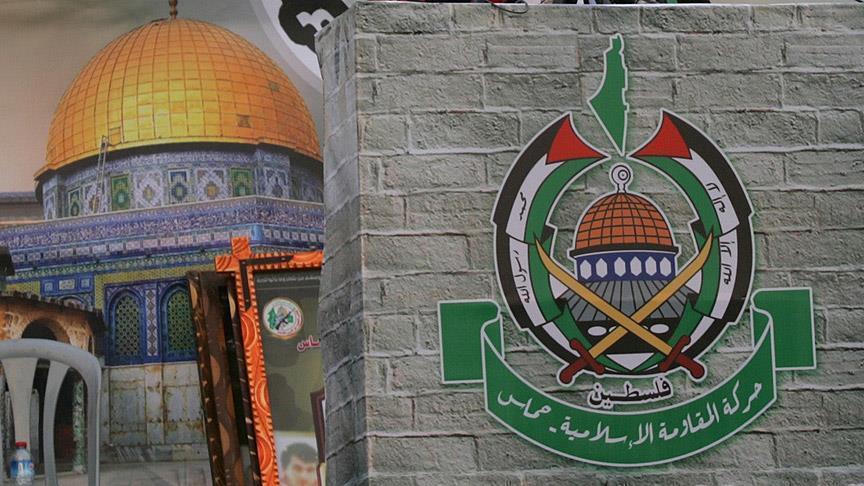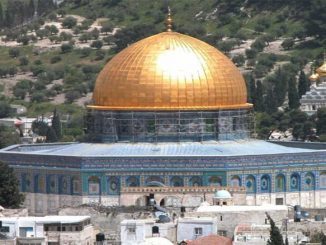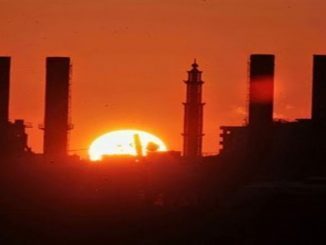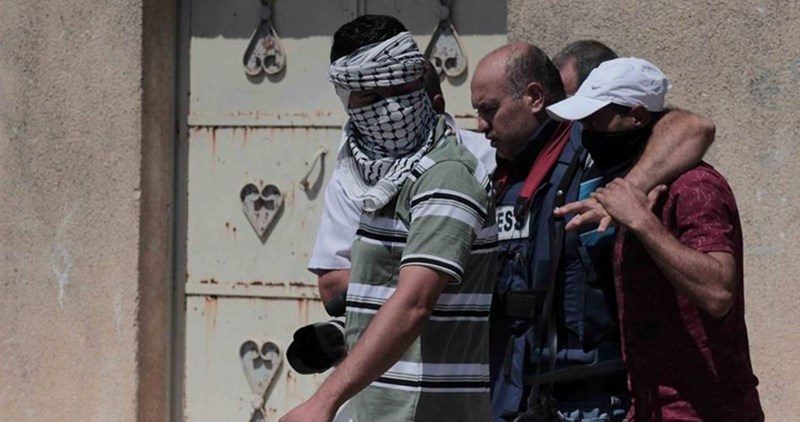
The Ramallah-based Palestinian High Court on Thursday suspended Palestinian municipal polls set for later this year that would have seen Palestine’s two main political movements — Hamas and Fatah — directly compete against one another for the first time in a decade, according to Anadolu Agency.
The court ostensibly postponed the vote in order to look into complaints that the planned elections would not cover Israeli-occupied East Jerusalem and allegations that courts in the Gaza Strip — governed by Hamas since 2007 — “lacked legitimacy”.
Court officials reportedly plan to reconvene on Dec. 21 after looking into the complaints and allegations.
Notably, the decision came shortly after a Gaza-based court ruled to annul five Fatah-linked electoral lists.
“This ruling [annulling the Fatah-linked lists] was issued by a Hamas-run court [in Gaza] with a view to derailing the upcoming polls,” Gaza-based Fatah spokesman Fayez Abu Eita said in a statement.
Jamil al-Khalidi, however, the Gaza-based regional director of the independent Central Election Commission, told Anadolu Agency that the Gaza court’s ruling was “in accordance with commission regulations”.
Last week, the election commission itself annulled four Fatah-linked electoral lists in the Gaza Strip.
Lawyer Nael al-Houh had previously appealed to the Supreme Court to postpone local elections, claiming the elections would be illegitimate if only conducted in the West Bank and Gaza Strip, and not East Jerusalem, sources said.
The court decided to hold another session on December 21 to further discuss the appeal submitted by al-Houh, according to court sources.
The court order stated that any administrative procedure must be conducted in every region of Palestine. If not, then the elections could not be legitimate. Therefore, since elections in East Jerusalem would not take place, the elections in the West Bank and Gaza must also be halted.
Al-Houh’s appeal stated that conducting fragmented elections in territory that is supposed to be unified was a “constitutional violation,” and added that elections in the Gaza Strip are “supervised by illegal courts and judges.” However, it remained unclear what al-Houh was specifically referring to in the besieged Gaza Strip, where the last elections took place a decade ago when Hamas won in 2006.
The polls had been scheduled to take place in October in both the Gaza Strip and the Israel-occupied West Bank.
In the past, the Israeli authorities have consistently prevented Palestinian voting in municipal polls in occupied East Jerusalem, which the Fatah-led Palestinian Authority views as the Palestinian capital.
A local court in the town of Khan Younis in the Gaza Strip ruled on Thursday to drop five Fatah movement candidates from local elections.
The ruling came after several appeals against the movement’s candidate lists in Khan Younis city, al-Qarrara, al-Fukhari, Abasan al-Kabira in the Khan Younis district, and al-Shukeh area in Rafah City.
The ruling drops the Fatah movement lists from the ballot in nine out of 25 municipalities.
Spokesperson for the Fatah movement Fayiz Abu Aita condemned the court’s decision to drop Fatah’s lists in the Khan Younis district, telling Ma’an that the decision is part of a larger aim to help Hamas stay in power, and to “destroy the democratic process of the election.”
Other lawyers had also demanded the Palestinian Supreme Court to postpone elections in the West Bank, describing any local elections in the Gaza Strip as “illegal.”
The Central Elections Committee also responded on Thursday to the Supreme Court order, saying that the committee had carried out various electoral procedures for more than two months to create a fair election process and to gain support for the elections among Palestinians. However, all activities have now been suspended, the committee said.
A committee representative said that the committee respects the court’s decision, and hopes that the process does not take long and that elections are resumed soon.
Meanwhile, the Palestinian People’s Party expressed its “sorrow” on Thursday in response to the Supreme Court decision, adding that the group had high hopes that the elections would serve to unify Palestinians and pave the way towards presidential elections. However, the group said the court’s decision revealed a different reality where the future of unity and democracy has been eroded as a result of conflicts between Palestinian political parties.
The group called on political parties to end their conflicts immediately and requested that the Palestinian presidency and legislative council organize a “Palestinian central council” that could discuss the current political crisis.
Hamas, on the other hand, said that the court decision represented the bias nature of Palestinian elections tilted in Fatah’s favor.
Hazem Qasem, spokesperson of the Hamas movement, said that the Palestinian Supreme Court order is aimed at “saving Fatah” in the elections after several of their candidates were dropped from the elections in Gaza.
The Palestinian Authority-controlled cabinet in the West Bank, dominated by Hamas’ political rival Fatah, announced its decision to hold elections in June, but it remained uncertain whether Hamas and the Gaza Strip would be included in the process, after the movement boycotted the last local elections in 2012 in response to alleged corruption and intimidation among Fatah officials.
For its part, the Hamas Movement has stressed the importance of holding the municipal elections as scheduled and abiding by what the Central Election Commission had pledged at the beginning of the electoral process.
In a press release on Thursday, Hamas condemned the higher court of justice for halting the municipal elections, and called for refraining from taking any decision obstructing such event, which it described as a “national merit of great importance to the Palestinian people.”
It underlined that this electoral event was a first step towards arranging the Palestinian house on democratic foundations and achieving the Palestinian reconciliation.
The Movement pointed out that the Palestinian authorities in Gaza fulfilled all the requirements and provided the atmosphere for the success of the elections in accordance with the election law and the procedures set by the Central Election Commission. It expressed its belief that the elections were frozen following external pressure on the Palestinian Authority, especially after several electoral lists from Fatah had been rejected by the election commission and competent courts.
“Why does Jerusalem not have a [Palestinian] municipal council or General Secretariat to represent the masses?” prominent Palestinian politician Mustafa Barghouti wrote on The Palestine Chronicle news website last week.
Israel occupied East Jerusalem during the 1967 Middle East War. It later annexed the city in 1980, claiming it as the capital of the Jewish state in a move never recognized by the international community.
Hamas, meanwhile, voiced its rejection of Thursday’s court ruling by the Ramallah-based high court, describing it as “a political — rather than legal — move”.
“The court issued this ruling in order to rescue Fatah after several of the latter’s electoral lists were annulled,” Hamas said in a Thursday statement.
The last elections in the Palestinian territories — legislative polls held in 2006 — saw Hamas win 76 out of 132 seats on the Palestinian Legislative Council.



